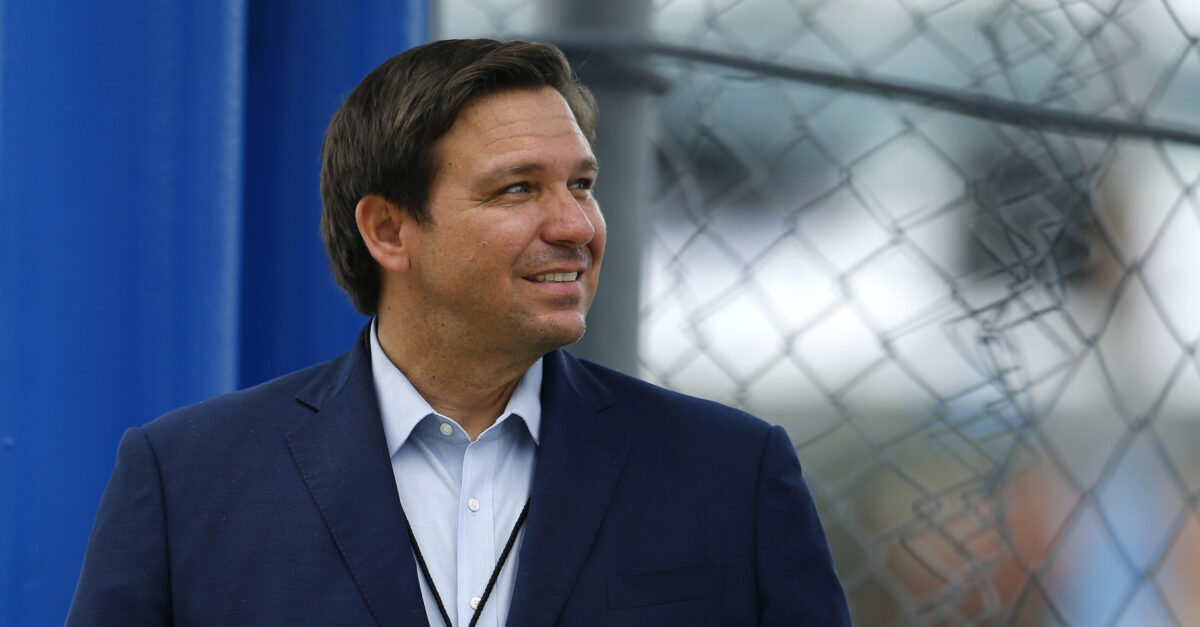
Gov. Ron DeSantis (R-Fla.)
Florida Republicans are pushing to change the law to eliminate the need for juries to be unanimous to sentence a defendant to death.
The change comes as part of Republican Gov. Ron DeSantis‘ sweeping criminal justice plan, which he has said is related to the case of Parkland school shooter Nikolas Cruz, who killed 17 people, but narrowly avoided a death sentence when one juror refused to vote for capital punishment.
“One juror should not be able to veto that,” DeSantis said Thursday at a news conference. “I don’t think justice was served.”
Rep. Berny Jacques (R-Seminole) and Sen. Blaise Ingoglia (R-Spring Hill) filed identical bills (SB 450 and HB 555) on Tuesday to make DeSantis’ pledge a reality. The legislation would allow judges in the Sunshine State to sentence defendants to death based on the recommendations of eight out of 12 jurors — rather than the requirement that the jury vote unanimously. The law would not change the requirement during the guilt phase of criminal proceedings, which still requires that a unanimous jury find a defendant guilty.
Ingoglia said in a statement Tuesday that Florida’s current unanimity requirement is “unconscionable” in that it allows “protest jurors” to deny justice to victims’ families and called the change a “much-needed reform to ensure that evil scumbags like Nikolas Cruz do not escape with just a life sentence.”
The proposed change is something of a reversion to pre-2016 Florida law. Before 2016, Florida allowed a judge to impose a capital sentence after the death penalty was recommended by seven of 12 jurors. However, the Supreme Court ruled in Hurst v. Florida that the Florida statute allowing a simple majority to recommend a death sentence was unconstitutional.
At the time, Justice Sonia Sotomayor wrote for the Court’s eight-member majority that the Florida law which afforded too much power to judges violated the Sixth Amendment, which requires “a jury, not a judge, to find each fact necessary to impose a sentence of death.”
Only Justice Samuel Alito dissented from the Hurst ruling and wrote that under his interpretation of the Sixth Amendment, a jury need not make specific findings authorizing the imposition of the death penalty.
DeSantis took office in January 2019, and appointed replacements for state judges who had reached the age of mandatory requirement. The next year, four years after the Supreme Court’s ruling in Hurst (and after a companion ruling by the Florida Supreme Court in the Hurst case) the Florida Supreme Court reversed itself in State v. Poole. In Poole, the Florida court found that Florida state law only requires jury unanimity at the guilt —and not the sentencing — phase of a capital case.
In Poole, Justices Charles Canady and Ricky Polston wrote:
Last, lest there be any doubt, we hold that our state Constitution’s prohibition on cruel and unusual punishment … does not require a unanimous jury recommendation — or any jury recommendation — before a death sentence can be imposed.
Justice Jorge Labarga wrote a scathing dissent in which he said the court’s majority “has taken a giant step backward and removed a significant safeguard for the just application of the death penalty in Florida,” and said that the change renders Florida “an absolute outlier” among states that use the death penalty.
Currently, Alabama is the only state that allows a judge to impose the death penalty on the recommendation of a non-unanimous jury.
Fred Guttenberg, the father of Jaime Guttenberg, who was murdered in the Stoneman Douglas High School shooting, criticized both DeSantis’ plans for criminal justice reform and the governor’s invoking of the Parkland shooting as the impetus.